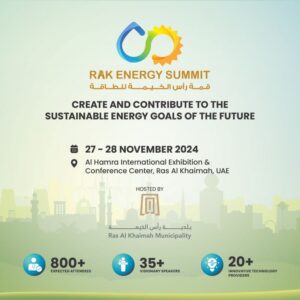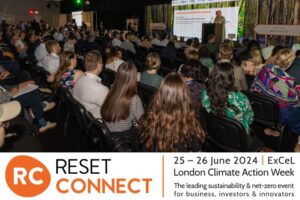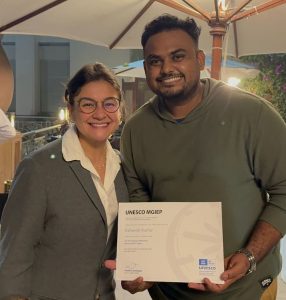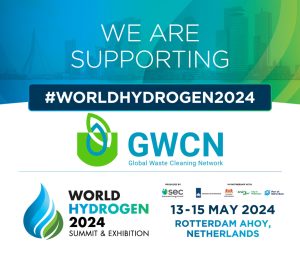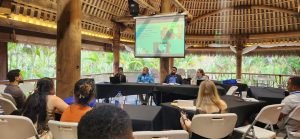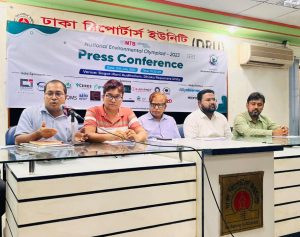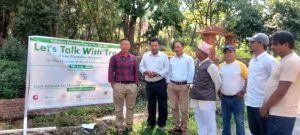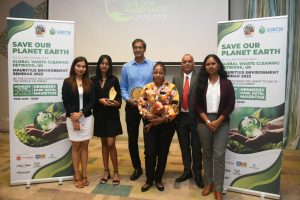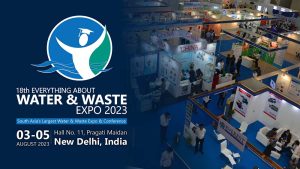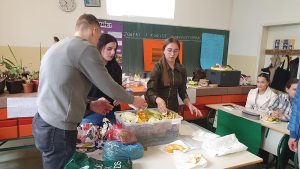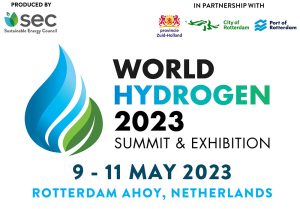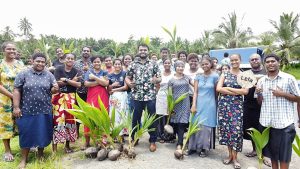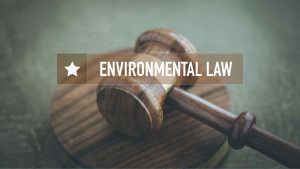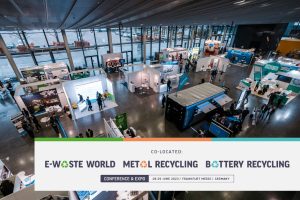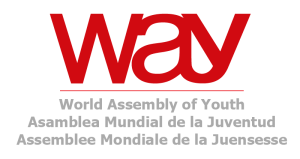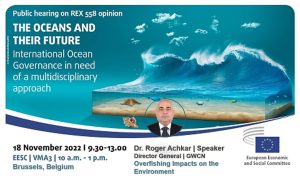GWCN, a Supporting Association of the World Utilities Congress 2024
GWCN is Supporting Association of the World Utilities Congress 2024, Abu Dhabi, UAE, 16-18 September 2024.
Read MoreGWCN, a Supporter of The Distributed Energy Show 2025
GWCN is a Supporter of The Distributed Energy Show, NEC, Birmingham, UK, 12-13 March 2025.
Read MoreGWCN, a Supporting Association of the North American Green Steel Summit 2024
GWCN is a Supporting Association of the North American Green Steel Summit 2024, Detroit, Michigan, USA, 28-29 October 2024.
Read MoreGWCN, a Supporting Association of the Middle East and North Africa Green Steel Summit 2024
GWCN is a Supporting Association of the Middle East and North Africa Green Steel Summit 2024, Dubai, UAE, 11-12 September 2024.
Read MoreGWCN, a Supporting Organization of the 19th EverythingAboutWater Expo 2024
GWCN is a Supporting Organization of the 19th EverythingAboutWater Expo 2024, New Delhi, India, 10-12 September 2024.
Read MoreGWCN, a Supporter of the Mediterranean Offshore Conference & Exhibition
GWCN is a Supporter of the Mediterranean Offshore Conference & Exhibition, Alexandria, Egypt, 20-22 October 2024.
Read MoreGWCN, a Supporter of the EV Battery Recycling Innovation Summit
GWCN is a Supporter of the EV Battery Recycling Innovation Summit, Stuttgart, Germany, 11 July 2024.
Read MoreGWCN, a Partner of the Gulf Sustainability Awards 2024
GWCN is a Partner of the Gulf Sustainability Awards 2024, Dubai, UAE, 25 September 2024.
Read MoreGWCN, the Network Partner of the Global Congress on Recycling and Waste Management
GWCN is the Network Partner of the Global Congress on Recycling and Waste Management, Rome, Italy, 21-22 October 2024.
Read MoreGWCN, an Association Partner of RAK Energy Summit 2024
GWCN is an Association Partner of RAK Energy Summit 2024, Ras Al Khaimah, UAE, 27-28 November 2024.
Read MoreGWCN, an Association Partner of the Advancing Ocean CDR Summit
GWCN is an Association Partner of the Advancing Ocean CDR Summit, Boston, MA, USA, 9-11 July 2024.
Read MoreGWCN, a Partner of the Reset Connect London 2024
GWCN is a Partner of the Reset Connect London 2024 ExCeL, London, UK, 25 - 26 June 2024.
Read MoreGWCN, a Supporter of the Asia-Pacific Hydrogen 2024 Summit & Exhibition
GWCN is a Supporter of the Asia-Pacific Hydrogen 2024 Summit & Exhibition, Brisbane, Australia, 12-13 September 2024.
Read MoreGWCN, an Association Partner of the European NEV Industry Chain Conference 2024
GWCN is an Association Partner of the European NEV Industry Chain Conference, Munich, Germany, 6-7 May 2024.
Read MoreGWCN, a Partner of ADIPEC 2024 Exhibition & Conference
GWCN is a Partner of ADIPEC 2024 Exhibition & Conference, Abu Dhabi, UAE, 4-7 Nivember 2024.
Read MoreWorld Hydrogen 2024 Summit & Exhibition Returns to Rotterdam, 13-15 May, Promising Its Most Impactful Event Yet
GWCN is a Supporter of the World Hydrogen 2024 Summit & Exhibition, Rotterdam Ahoy, Netherlands, 13 - 15 May 2024.
Read MoreGWCN, a Partner of the Innovation Zero 2024 Conference
GWCN is.a Partner of the Innovation Zero 2024 Conference, Olympia London, 30 April - 1 May 2024.
Read MoreGWCN, a Partner of the 26th World Energy Congress
GWCN is a Partner of the 26th World Energy Congress, Rotterdam, The Netherlands, 22-25 April 2024.
Read MoreGWCN Participation at the UNESCO MGIEP Participatory Workshop, New Delhi, India, 29 Nov – 1 Dec 2023
Mr. Pallawish Kumar, GWCN Membership Manager for Oceania, was a speaker and participant at the UNESCO MGIEP Participatory Workshop, New Delhi, India, 29 Nov - 1 Dec 2023.
Read MoreGWCN, a Supporter of the Hydrogen Americas 2024 Summit & Exhibition
GWCN is a Supporter of the Hydrogen Americas 2024 Summit & Exhibition, Washington D.C., USA, 11-12 June 2024.
Read MoreGWCN, a Supporting Association of the 28th ICCI International Energy and Environment Fair and Conference
GWCN is a Supporting Association of the 28th ICCI International Energy and Environment Fair and Conference, Istanbul, Turkey, 24-26 April 2024.
Read MoreGWCN, a Partner of the 2nd World Recycling Convention
GWCN is a Partner of the 2nd World Recycling Convention, Rome, Italy, 28-30 October 2024.
Read MoreGWCN, a Supporting Association of the Middle East Energy 2024
GWCN is a Supporting Association of the Middle East Energy 2024, Dubai World Trade Center, UAE, 16-18 April 2024.
Read MoreGWCN, a Supporter of the World Hydrogen 2024 Summit & Exhibition
GWCN is a Supporter of the World Hydrogen 2024 Summit & Exhibition, Rotterdam Ahoy, Netherlands, 13 - 15 May 2024.
Read MoreGWCN, a Supporter of The Distributed Energy Show 2024
GWCN is a Supporter of The Distributed Energy Show, Telford, UK, 13-14 March 2024.
Read MoreGWCN, a Partner of the 2024 World Hydrogen Energy Industry Expo (WHE 2024)
GWCN is a Partner of the 2024 World Hydrogen Energy Industry Expo, Guangzhou, China, 8-10 Aug 2024.
Read MoreGWCN, a Partner of the 2024 World Battery & Energy Storage Industry Expo
GWCN is a Partner of the 2024 World Battery & Energy Storage Industry Expo, Guangzhou, China, 8-10 Aug 2024.
Read MoreGWCN Participation at the 6th Pacific Urban Forum 2023
Mr. Pallawish Kumar, GWCN Membership Manager for Oceania, was a speaker at the 6th Pacific Urban Forum 2023, Fiji, 5-7 September 2023.
Read MoreGWCN, a Supporter of the Hydrogen & Carbon Capture Technology Expo 2023
GWCN is a Supporter of the Hydrogen & Carbon Capture Technology Expo, Messe Bremen, Germany, 27-28 September 2023.
Read MoreGWCN, an Association Partner of the Connecting Green Hydrogen MENA 2024 Conference & Exhibition
GWCN is an Association Partner of the Connecting Green Hydrogen MENA 2024 Conference & Exhibition, Dubai, UAE, 23-25 April 2024.
Read MoreBangladesh National Environmental Olympiad 2023
GWCN was the international partner of this event organized by 'Bangladesh Poribeshbid Society' in Nepal.
Read MoreNepal Tree Plantation Program 2023
GWCN was a main supporter of this event organized by 'Dalit Alliance for Natural Resources' in Nepal.
Read MoreMauritius Environment Seminar 2023
GWCN, represented by Ms. Beth Ayoo, Membership Manager for Eastern Africa, was the main partner on this seminar, organized by Save Our Planet Earth (SOPE) in Mauritius.
Read MoreGWCN, a Supporting Organization of the 18th EverythingAboutWater & Waste Expo 2023
GWCN is a Supporting Organization of the 18th EverythingAboutWater & Waste Expo 2023, New Delhi, India, 3-5 August 2023.
Read MoreGWCN, a Supporting Association of the 27th ICCI International Energy and Environment Fair and Conference
GWCN is a Supporting Association of the 27th ICCI International Energy and Environment Fair and Conference, Istanbul, Turkey, 24-26 May 2023.
Read MoreGWCN, the Network Partner of the Eastern Mediterranean Energy Conference & Exhibition (EMC 2023)
GWCN is the Network Partner of the Eastern Mediterranean Energy Conference & Exhibition (EMC 2023), Limassol, Cyprus, 28-30 November 2023.
Read MoreGWCN, a Partner of the 2023 World Battery & Energy Storage Industry Expo
GWCN is a Partner of the 2023 World Battery & Energy Storage Industry Expo, Guangzhou, China, 8-10 Aug 2023.
Read MoreImproving waste management in Bosnia and Herzegovina and Serbia: The success of the Zero Waste Municipalities initiative
The immense scale of the challenge of waste, as well as its cross-cutting nature, means that without concerted action to improve waste management, sustainable development is not possible. This is especially clear in regions such as the Western Balkans, where countries face the dual challenges of being in urgent need of both economic growth and environmental stewardship.
Read MoreGWCN, a Supporter of the VISION 2050 Challenge in Peru
GWCN is a Supporter of the VISION 2050 Challenge in Peru. The Challenge concludes on 01 April 2023.
Read MoreGWCN, a Partner of the Reset Connect London 2023
GWCN is a Partner of the Reset Connect London 2023, ExCeL, London, UK, 27 - 28 June 2023.
Read MoreGWCN, a Supporter of the World Energy Storage 2023 Exhibition & Forum
GWCN is a Supporter of the World Energy Storage 2023 Exhibition & Forum, Rotterdam Ahoy, Netherlands, 10 - 11 May 2023.
Read MoreGWCN, a Supporting Association of the Middle East Energy 2023
GWCN is a Supporting Association of the Middle East Energy 2023, Dubai World Trade Center, UAE, 7-9 March 2023.
Read MoreGWCN, a Supporter of the World Hydrogen 2023 Summit & Exhibition
GWCN is a Supporter of the World Hydrogen 2023 Summit & Exhibition, Rotterdam Ahoy, Netherlands, 9 - 11 May 2023.
Read MoreGWCN, a Partner of the 1st Investment Fair Energy in Mali (SIEMA 2023)
GWCN is a Partner of the 1st Investment Fair Energy in Mali (SIEMA 2023), Bamako, Mali, 21-22 February 2023.
Read MoreEmpowerment Training on Climate Change in Waivou Village, Rewa Province, Fiji
GWCN was a supporter of the Empowerment Training on Climate Change, held in Waivou Village, Rewa Province, Fiji, held on 23-25 January 2023.
Read MoreGWCN, a Supporter of The Distributed Energy Show
GWCN is a Supporter of The Distributed Energy Show, Telford, 14-15 March 2023.
Read MoreGWCN, Network Partner of the OMC Med Energy Conference & Exhibition
GWCN is the Network Partner of the OMC Med Energy Conference & Exhibition, Ravenna, Italy, 23-25 May 2023.
Read MoreServing African Communities through Environmental Research
Exclusive Interview with Dr. Roger Achkar: The African continent’s fauna, flora and aquatic systems deserve utmost attention. GWCN is leading research in these areas in various places of Africa with the help of local researchers and communities.
Read MoreLes réglementations environnementales internationales … socle de durabilité du développement mondial
There is a growing need to create a holistic set of international environmental regulations that apply worldwide but take into consideration the climatic, economic and infrastructural differences between countries to achieve sustainable goals in the years to come.
Read MoreGWCN, Partner of the E-Waste World, Metal Recycling, Battery Recycling Conference & Expo
GWCN is the Partner of the E-Waste World, Metal Recycling, Battery Recycling Conference & Expo, held at the Frankfurt Messe, Germany on 28-29 June 2023.
Read MorePartnership with the World Assembly of Youth
GWCN and the World Assembly of Youth started a collaborative partnership on research and networking.
Read MorePartnership with Big Blue Ocean Cleanup
GWCN and Big Blue Ocean Cleanup started a collaborative partnership on research, networking and education.
Read MoreThe European Economic and Social Committee’s hearing “THE OCEANS AND THEIR FUTURE – International Ocean Governance in need of a multidisciplinary approach” 2022
Dr. Roger Achkar, Director General of GWCN, is speaking at the EESC public hearing on the 18th November 2022 about the Overfishing Impacts on the Environment.
Read MoreGWCN, Network Partner of the Waste Management Europe Exhibition & Conference 2023
GWCN is the Network Partner of the Waste Management Europe Exhibition & Conference in Bergamo, Italy from 18 - 20 April 2023.
Read MoreGWCN Themed Webinar: Combating Deforestation
Under the themed webinar series, this specific conference discusses the issue and dangers of deforestation in the world.
Read MoreGWCN Themed Webinar: The Sanitation Challenge in Africa
Topics include: Factors driving the sanitation problems in Africa, including socio-cultural barriers; Assessment of sanitation policies and national strategies; Classic and innovative solutions for tackling sanitation problems in Africa.
Read MoreGWCN at the Asia-Pacific Ministerial Conference on Disaster Risk Reduction
Convened by UNDRR, the APMCDRR is the main regional platform in Asia-Pacific for promoting coordination and cooperation on DRR and the implementation of the Sendai Framework for Disaster Risk Reduction.
Read MoreHow Is Flood Impacted by Climate Change?
Overall, with climate change, weather extremes are becoming more unpredictable and floods are happening more frequently, inflicting significant damage to individuals and society.
Read MoreThe Brouhaha of Garbage Disposal in Developing Countries
This article seeks to bring to light some of the problems of garbage disposal in developing countries and proffer measurable solutions to them.
Read MorePartnership with TERI
GWCN and TERI started a collaborative partnership on research and networking.
Read MoreWorking Towards A Brighter Future Through Renewable Energy – A Review Of Australia’s 2050 Goal To Net Zero
Globally, there is a movement towards renewable energy as a source of power, with policy and regulatory framework execrating this growth industry. The focus of this paper is Australia’s commitment to net zero by 2050 and its advancement in the use of hydropower, concentrated thermal energy and wind energy.
Read MorePartnership with the World Toilet Organization
GWCN and the World Toilet Organization started a collaborative partnership on research and networking.
Read MoreBlood Diamonds: More than a Humanitarian Crisis?
Even though the human atrocities of Blood Diamonds reached our collective conscience, the environmental consequences of diamond mining have not. In this article, we will explore how the exploitation of diamonds is interlinked with the exploitation of people, and to a greater extent – the environment.
Read MoreThe Municipal Waste Revolution – How Australia and other Nations are moving forward
We live in a time of rapid urbanization and population growth. But this growth comes with challenges that impact on humanity and the environment. Billions of tons of municipal waste (and greenhouse gas) covers landfill sites, floods our oceans and destroys the environment each year. This is a challenge that government and all of society must work together to address.
Read MoreGWCN Annual Members Conference (Online – 26 May 2022)
An annual event gathering all member organizations of GWCN, to openly discuss latest topics related to environment and energy.
Read MoreGWCN, Network Partner of the Waste Management Europe Exhibition & Conference 2022
GWCN is the Network Partner of the Waste Management Europe Exhibition & Conference, held in Bergamo, Italy on 21 - 23 June 2022.
Read MorePartnership with the POP Movement
GWCN and the POP Movement started a collaborative partnership on research and networking.
Read MoreA Balancing Act: Environmental Conservation in One of the World’s Fastest Growing Economies
India’s combination of economic and environmental pressures has created a hotbed of energy innovation. Through its dedication to policy and technology, the country is steadily progressing towards the ideals set forth in the Paris Agreement and INDC target(s).
Read MoreAn Analysis of Renewable Energy Options for Rural Water Supply in Nigeria
Nigeria has huge renewable water resources and yet is still experiencing water scarcity. Employing the best renewable energy options that best fit a location and making wise investment decisions will pave the way for sustainable water resource management.
Read MoreSlow Onset of Climate Change Events and Water Supply Nexus: Assessing the Impacts in Northeast Nigeria
The slow onset of climate change events such as drought and desertification has an impact on water resources. The northeast region of Nigeria is in the semi-arid climatic zone and exposing largely to the risk of drought and desertification than the other part of the country.
Read MoreConference (Kazakhstan): Plastic in Circular Economy: Production – Processing – Secondary Usage
Dr. Roger Achkar and Ms. Emilia Dazhuk are keynote speakers at the conference organized in Almaty by CSD, Kazakhstan (GWCN member organization) on the 23rd of February 2022, and titled ‘Plastic in Circular Economy: Production - Processing - Secondary Usage’. GWCN presentation title is: Circular Economy: - Avoiding and Reducing Plastic Waste.
Read MoreA web that pulls you down
No matter how hard we try to separate ourselves from it, we are part of nature’s intricate web. It is our responsibility to make sure it is healthy and sustainable because if this web collapses, it will pull us down with it.
Read MoreLandfill of the Dead
Different cultures developed their unique ways of saying farewell to dead, like burial, cremation, immurement, and mummification. And with time these rituals have evolved notably from their rudimentary form. In their current state, traditional funeral rites have a serious impact on the environment.
Read MoreImpact of Forest Ecosystems and Deforestation on the Climate
Forest ecosystems can store significant amounts of carbon, thus acting as a carbon sink. This effect is reduced by the decline in forest-covered land, and therefore by deforestation. However, the relationship between forest ecosystems and climate is not entirely straightforward and several factors need to be considered.
Read MoreBiodiversity Loss: the Causes, the Importance, and the Role of Ecosystem Services
This article discusses the global problem of biodiversity loss, its causes and why biodiversity is important for human society. It primarily summarizes the latest research on the state of biodiversity, at EU-level and globally.
Read MoreGlobal Waste Trade and its Effects on Landfills in Developing Countries
There does exist a world where global waste trade benefits importing and exporting country equity. To reach this state of equity, governments worldwide will have to work together to ensure systems are not overwhelmed and within their own nations to manage as much solid as possible adequately and sustainably.
Read MoreOverfishing: A Current Serious Environmental Problem
In recent years, the global consequences of overfishing have been the focus of scientists, economists, and policymakers. Overfishing is a contemporary issue that will continue and will cause fishless oceans by 2048 if humans keep fishing at the current pace.
Read MorePartnership with the Foundation for Environmental Education
GWCN and the Foundation for Environmental Education started a collaborative partnership on research, networking and education.
Read MoreGWCN’s Film Production and Media Manager is the Co-Director of the ActNowFilm
Metro coverage of the COP26 ActNowFilm, co-directed by Mr. Syed Jazib Ali, GWCN's Film Production and Media Manager.
Read MoreSecond Generation Bioethanol – An Overview
Bioethanol is an effective alternative to fossil fuels, as it is a renewable energy source which also has the advantage of leading to a reduction in greenhouse gas emissions. The use of first generation bioethanol, however, leads to competition between land use for food and energy production purposes. Second generation bioethanol is an attractive option, as it eliminates the issue, while also permitting the use of waste as biomass.
Read MoreMultifaceted Threats to Biodiversity in Central Asia
Biodiversity is an integral part of the earth’s ecosystem. Changes in animal species, temperature, water resources or soil composition directly affect the existence and habitats of flora and fauna. In Central Asia, local ecoregions and biodiversity are strongly affected by human behaviour in the region (agriculture, poaching) and by global trends in climate change. The case study of the snow leopard demonstrates that the supra-national and multi-dimensional challenges to its habitat create a challenge for individual countries to effectively regulate and implement preservation policies.
Read MoreThe Status of Renewable Energy Industry in India
Presentation prepared for GWCN by Dhitasree Guha Roy
Read MoreRenewable Energy Industry in India – A Path towards Sustainability
The article attempts to study the reasons behind the growing need of renewable energy in Indian economy, explores the ways through which the non-conventional energy sources will benefit the country in the long run. It also reveals the energy landscape in India, the efforts and initiatives which are being taken to encourage the growth of the renewable energy industry in the country, the challenges which are faced while the expansion of renewable energy projects and suggests way-outs for achieving a better growth path for the industry.
Read MoreConference (Online): Addressing Sustainable Development Goals
GWCN Director General, Dr. Roger Achkar, is a keynote speaker at the concatenated events organized by Mapúa University, Philippines (GWCN member organization) on 14-17 September 2021. These events focus on the sustainable development goals (SDGs) highlighting how research and academic programs would contribute to giving solutions to SDGs. Dr. Achkar's presentation will be about Climate Change and Sustainable Development.
Read MoreClimate change and air pollution: two problems that are interrelated
Climate change and air pollution are two serious problems, as both affect the ecosystems, species and population. There are several articles discussing both problems and how these two are related, showing how the interaction occurs in different space and time scales, through various mechanisms.
Read MoreEnvironmental Network Research Center’s Summit (Online – 2 September 2021)
3 of GWCN researchers are presenting the findings of their environmental and energy research projects.
Read MoreWebinar: Ensuring availability and sustainable management of water and sanitation for all
This webinar which is organized by our member Y4CAP and supported by GWCN, helps understand the importance of quality of water, sanitation and hygiene from a sustainability perspective, and the effects of poor management system in the water sector.
Read MoreThe biggest hurdle for the climate change fight isn’t technology – it’s human psychology
We are wired to trust each other, to communicate our ideas, identities, and beliefs through stories. Every one of us has a story about how climate change has impacted them and everybody has a friend or family member that will listen to that story. Although our old wiring with these ancient evolutionary roots makes us recalcitrant if we all leverage that power of trust and storytelling, we can create the popular movement we need to stop climate change.
Read MoreOnline Workshop: The 6th SDG – Clean Water and Sanitation
This free online workshop in Arabic language is organized by our 2 member organizations 'GREENWAVE for Environment and Sustainability' and 'Kuwait Water Association' and is supported by GWCN.
Read MoreWebinar: Accelerating NET ZERO with GREEN GAS
In this webinar which is supported by GWCN, you’ll learn not only the vital role of green gases for net-zero energy systems by 2050 but also how AB Energy UK’s technologies could help your business in reducing emissions in the most cost-efficient way.
Read MoreWebinar: Waste Management and Sustainability
This webinar which is organized by our member Y4CAP and supported by GWCN, would enhance the knowledge on the management of waste and about leading a sustainable lifestyle by understanding the impact of waste in our near future.
Read MoreWebinar: Sustainable Construction for a Better Living Environment
This webinar supported by GWCN and organized by Vietnam Green Building Council (Member of GWCN) and Eurocham Green Growth Sector Committee, will illustrate the role of the Construction sector toward Green City and better living environment as well as the direction for Green building material development in Vietnam.
Read MoreMy Experience as Researcher with GWCN
One of the best parts of my close association with GWCN was the ability to conduct and write my own scientific articles, which after being vetted, were published on the GWCN website. This was excellent more so because of the global links GWCN has with environmental research organisations and NGOs and my published research was immediately being shared with my peers across the world. I gained some incredible feedback and a chance to view my own work through many different perspectives.
Read MoreWhat hatched first, Climate Change or COVID-19?
The path to a pandemic is clear. Individuals have caused disruption in land use by way of the intensification of agricultural practices, unviable trade, overproduction and overconsumption. We destroy nature, create a massive loss in biodiversity and clear a path for wildlife, livestock, pathogens and people to walk casually together, hand in hand.
Read MoreWebinar: Confused by Light – Light Pollution and its Consequences on Animals
For billions of years, nights—especially moonless nights—were dark. However in the last 150 years human urbanisation has transformed our nocturnal landscape, so that now more than one third of the human population is no longer able to see the Milky Way. Light pollution is expanding every year by around 6%, affecting more organisms, including plants, fungi, bacteria and animals.
Read MoreIn Pursuit of Purpose: Choosing to make a Difference
My name is Joshua Fuller and I currently reside in Oklahoma, in the Midwest of the United States. I grew up in the countryside near a rural lake town. I have always been captivated by nature and science. Many would consider me a traveler in my personal life and when it comes to work a collaborative […]
Read MoreEnvironmental Education as Tool to Build Sustainable Behaviour in Children
Environmental degradation and climate change have been caused by the unsustainable patterns of human behaviour as they are linked to consumption. Most efforts to improve environmental sustainability involve international cooperation, legal restrictions, and technological developments, rather than behaviour. This article argues that the achievement of sustainability can only be achieved through adjusted human behaviour and that education plays a major role in this regard. Instead of informing children of our harmful actions, educators and society members need to create a generation for whom sustainable behaviour is part of their identity and habits.
Read MoreMy Journey with GWCN
It is with great excitement that I take part in this amazing journey with the Global Waste Cleaning Network (GWCN). With a background in international relations and a Master’s Degree in Peacekeeping Management, my skills support the work that GWCN invests in and advocates for, both in a local and global context. Before coming to […]
Read MoreThinking out of the Box – Green Solutions for Lebanon
There are plenty of good ideas that need to be implemented. There should be someone to LEAD the start of the implementation pushing the social groups to follow or to copy the model. Eng. Marcel Mansour highlights in this article the main environmental problems in Lebanon and proposes solutions for them.
Read MoreEvaluating Current Air Pollution Impact Prediction Practices in the United Kingdom
The current lack of adequate Air Quality (AQ) Impact Assessment in the United Kingdom has repeatedly been emphasized in previous studies to be one of the main factors in the reduced quality of Environmental Impact Statements (EISs). This research critically evaluates AQ impact prediction methods in three EISs through analyzing four stages: impact identification, impact assessment, significance evaluation and mitigation measures using a best practice technique evaluative checklist approach.
Read MoreClimate Resilient Coastlines, UK
Climate change has taken its toll on the UK coastline through increased sea levels, increased rate of erosion and heightened flood frequency and intensity. This has had detrimental impacts on people and the economy through the destruction and damage of infrastructure. With global mean temperatures still predicted to increase, the UK coastline is more than likely to experience further destruction if effective steps are not taken to strengthen the resilience of coastal infrastructure.
Read MoreLa Deforestación en el Hábitat del Orangután de Tapanuli: Un Plan de Conservación Medioambiental
In 2017, the year of its identification, Tapanuli orangutan was ranked as a Critically Endangered species, with only 800 individuals. Despite the efforts to protect some of the world's most biodiversity-rich territories, Sumatra still has one of the highest levels of deforestation. Unsustainable exploitation of natural resources threatens the survival of these primates. Protecting habitat, tightening environmental laws, as well as creating a consistent educational project are some of the solutions proposed in this article to prevent the extinction of Tapanuli orangutan.
Read MoreTreatment Methods for Reducing Nitrogen Content in Landfill Leachate
Leachate is a hazardous by-product of landfills, rich in ammonia and organic material. If it is not properly managed, it can lead to both surface and groundwater contamination. One of the substances which need to be removed from leachate is nitrogen.
Read MoreCarbon Markets: An Efficient Policy to Mitigate Climate Change? A Reflection of Theory and Practice
The world will suffer from more intensive and frequent extreme weather events, droughts and flooding, and a global rise in the sea-level. This will directly affect natural ecosystems and thus also the human ecosystem. These climate-related risks depend on the magnitude and the rate of global warming with high confidence.
Read MoreEcological Impacts on Saline Alkaline Lakes Globally
Globally saline lakes serve as important habitats for migrating shorebirds and water birds globally most being sites of internationally important wetlands and RAMSAR sites with highly productive ecosystems. This article researches and outlines six environmental pressures faced by saline-alkaline lakes globally; some that are increasing in strength over time.
Read MoreAnalysing The Impact Of Oil And Gas Exploration Processes On The Environment, A Case On The Yield Of Beans Among Small Holder Farmers In Western Uganda
This study focused on the threat of the oil and gas exploration process to the farming households by considering the direct effects on the yield of beans and specifically among the small scale farmers close to the oil and gas camps in Uganda.
Read MoreChallenges in marine fisheries in Latin America and the Caribbean: Illegal, Unreported and Unregulated fishing practices leads to overfishing
Despite the difference between small and large-scale fisheries, LAC fisheries face similar challenges. Illegal, unreported, and unregulated (IUU) fishing leads to overfishing and affects the possibility of assessing and managing marine resources.
Read MoreWho’s in Charge of Space: Can we “Marie Kondo” Space in Order to Save the Future of Space Travel?
One huge component of our planet is often overlooked when it comes to trash management; space. We are dangerously reaching our debris capacity and as we slowly fill the vast space above us, we are approaching the precipice of imprisoning ourselves in a world limited by our own doing.
Read MoreUrban Agriculture to the Rescue
the effect of climate change is felt globally. Thus, people in a low adaptive region need support to build resilience to climate-related disasters. The best time for climate action is now. Individuals, organizations, and governments should act not, act together, or act differently.
Read MoreGlobal Reforestation: Drivers of Success and Failure
Presentation prepared for GWCN by Mariam Titus George
Read MoreGWCN Annual Members Conference (Online – 27 May 2021)
An annual event gathering all member organizations of GWCN, to openly discuss latest topics related to environment and energy.
Read MoreMarine Debris Killing Our Oceans
the effect of climate change is felt globally. Thus, people in a low adaptive region need support to build resilience to climate-related disasters. The best time for climate action is now. Individuals, organizations, and governments should act not, act together, or act differently.
Read MoreSustainable Approach to Water Utilization through Sewage Treatment in Kenya
This document shows how Kenya, being a third world country that is an ASAL, with options that are much limited and more difficult due to: lack of infrastructure, technical and institutional capacity, and financing, can sustainably utilize wastewater, which represents a widely available and valuable resource.
Read MoreGlobal Warming: Why there is need for Climate Action
About 90 percent of disasters in recent decades in Africa are been driven by weather and climate. Food production is at risk of declining. And there is reduction in length of the growing season, which affects the farmer’s livelihood. This paper reviews articles on global warming and climate change from credible sources like the Intergovernmental Panel on Climate Change (IPCC).
Read MoreCollaboration with Cranfield University on MSc Research Projects
GWCN and the prestigious Cranfield University's School of Water, Energy and Environment (UK) started a collaborative partnership on the School's MSc group and thesis research projects.
Read MoreEnvironmental Network Research Center’s Summit (Online – 26 February 2021)
11 of GWCN researchers presenting the findings of their environmental and energy research projects.
Read MoreWebinar: Healthy Environment & Sustainable Energy (Online – 20 November 2020)
Energy transition from fossil fuel to sustainable energy - Renewable Energy Abundance as the key for Future - Volunteering for Our Ocean: How a Global Community Makes a Big Impact through the International Coastal Cleanup - Environmental and Economic Benefits of Landfill Gas Power Plants.
Read MoreConference: Restoring the Delta Fisheries (Online – 23 October 2020)
GWCN was one of the main evaluators of this online event organized by “MyEnvironment, MyWealth”, an organization member of GWCN.
Read MoreThe Fashion Industry and its Effects on the Environment
Over recent years many issues within the fashion industry have come to light regarding its workplace culture. Amongst some significant sustainability issues, such as the exploitation of labour, the fashion industry can also be characterised by its disproportionate environmental footprint. From the moment of manufacturing to the process of purchasing and discarding items, the fashion […]
Read MoreLandfill gas-to-energy conversion power plants
Landfill gas is a product that is released during the fermentation of organic substances under anaerobic conditions (without oxygen). It is a high-energy fuel that can substitute fossil fuel. Depending upon the landfill design, as well as waste composition, compaction, moisture and several other factors, landfills are available to collect and use this valuable renewable […]
Read MoreConsequences of Deforestation on the Environment
For as much as the causes of deforestation could keep being put up for a continuous debate, the fact of the matter is that it represents an environmental issue. Namely, human overpopulation creates the need for additional agricultural land, and more often than not, construction of consumer-driven industrial facilities or our ceaseless demand for solid […]
Read More








